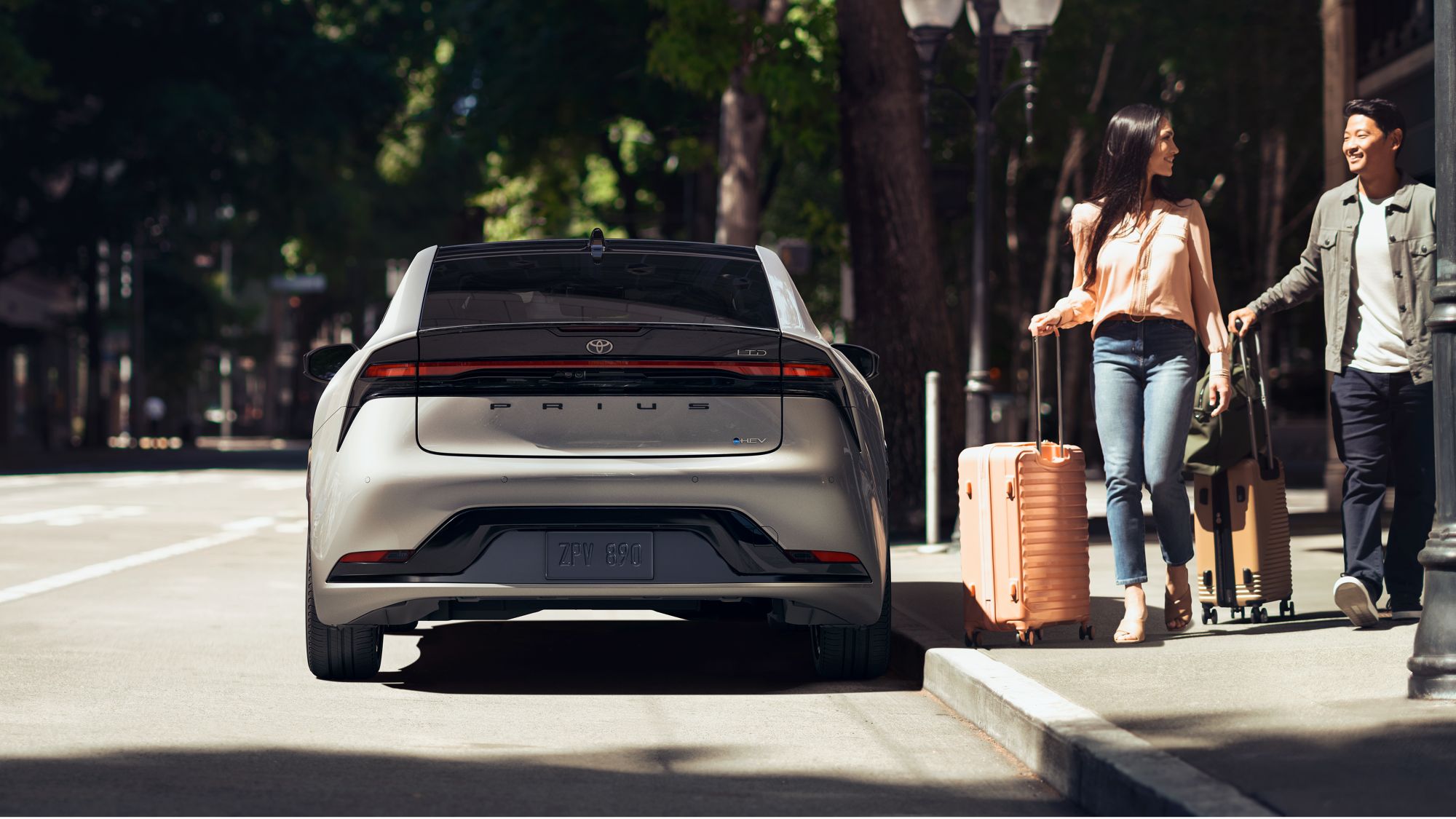Automotive manufacturers are increasingly turning their attention towards sustainability, and Toyota stands out as a pioneer in the field of hybrid and electric vehicles. With a steadfast commitment to environmental responsibility, Toyota has become a shining example of how a leading automaker can integrate sustainability into its core values. Discover how Toyota is leading the way forward with Phil Long Toyota of Trinidad.
Toyota's Commitment to Sustainability: A Look at Hybrid and Electric Models
The Road to Sustainability: Toyota's Vision
Toyota's journey towards sustainability has been marked by a clear vision and a series of innovative milestones. Their commitment to sustainability is not a recent development but a long-standing commitment that dates back to the early 1970s when the first oil crisis hit the world. This crisis prompted Toyota to explore alternative ways of reducing fuel consumption and emissions, leading to the development of the first hybrid vehicle, the Toyota Prius, in 1997.
From that point on, Toyota has continued to invest heavily in research and development, pushing the boundaries of hybrid and electric vehicle technology. Their vision extends beyond just producing eco-friendly vehicles; it encompasses a holistic approach to sustainability that considers the entire lifecycle of their products.
Hybrid Models: The Heart of Toyota's Sustainability Efforts
Toyota's hybrid models have played a central role in their pursuit of sustainability. These vehicles combine the benefits of gasoline and electric power, providing drivers with enhanced fuel efficiency and reduced emissions. The Toyota Prius, in particular, has become synonymous with hybrid technology and has sold over 15 million units worldwide since its inception.
One of the key advantages of Toyota's hybrid technology is its ability to seamlessly switch between gasoline and electric power, ensuring that drivers can enjoy the best of both worlds. Whether you're navigating city streets or cruising on the highway, Toyota's hybrid models optimize fuel consumption and minimize environmental impact.
But Toyota's commitment to sustainability goes beyond just the performance of their hybrid vehicles. They have also taken significant steps to reduce the carbon footprint of their manufacturing processes. By implementing innovative production techniques and using sustainable materials, Toyota aims to make every aspect of its operations more environmentally friendly.

The Advantages of Hybrid Technology
Toyota's hybrid technology has several advantages that contribute to its commitment to sustainability:
Fuel Efficiency: Hybrid vehicles are known for their impressive fuel efficiency, which reduces greenhouse gas emissions and lowers fuel costs for drivers. Toyota's hybrid models consistently rank among the most fuel-efficient cars in their respective categories.
Reduced Emissions: Hybrid vehicles produce fewer tailpipe emissions compared to traditional gasoline-powered cars, making them a cleaner option for the environment. This reduction in harmful pollutants contributes to improved air quality and reduced health risks.
Regenerative Braking: Toyota's hybrid vehicles employ regenerative braking technology, which captures and stores energy that would otherwise be wasted during braking. This energy is then used to recharge the vehicle's batteries, further improving efficiency.
Quiet Operation: Electric power is inherently quieter than internal combustion engines, providing a quieter and more comfortable driving experience. This reduced noise pollution benefits both drivers and communities.
Longevity: Toyota's hybrid systems are built to last and have a track record of reliability. This durability reduces the need for frequent vehicle replacements, reducing waste and conserving resources.
Resale Value: Hybrid vehicles tend to retain their value well, making them a sound financial investment for environmentally conscious consumers.
Electric Models: The Future of Sustainable Transportation
In addition to their hybrid models, Toyota has also made significant strides in the realm of fully electric vehicles (EVs). While they have been somewhat late to the electric vehicle game compared to some competitors, Toyota's approach is marked by a steadfast commitment to research and development.
One of the most promising electric vehicles in Toyota's lineup is the Toyota bZ4X, an all-electric compact SUV. Released in 2022, the bZ4X represents Toyota's vision for the future of sustainable transportation. It features an all-electric powertrain with zero tailpipe emissions, making it an eco-friendly choice for consumers.
Toyota is also investing in battery technology to improve the performance and range of its electric vehicles. By developing solid-state batteries, which promise greater energy density and faster charging times, Toyota aims to address some of the key limitations of current EV technology.

A Commitment to Sustainability Across the Board
Beyond their hybrid and electric vehicles, Toyota's commitment to sustainability extends to other aspects of their business. They have set ambitious goals to achieve carbon neutrality by 2050, encompassing both vehicle emissions and manufacturing processes. This includes transitioning to renewable energy sources for their production facilities, reducing carbon emissions from their supply chain, and working towards a circular economy by recycling and reusing materials.
Moreover, Toyota is exploring hydrogen fuel cell technology as another avenue for sustainable transportation. Their Mirai hydrogen fuel cell vehicle showcases their dedication to finding innovative solutions that reduce dependence on fossil fuels.
Toyota's commitment to sustainability in its hybrid and electric models is a testament to its leadership in the automotive industry. Their pioneering efforts have not only provided consumers with eco-friendly transportation options but have also set a high standard for environmental responsibility. As Toyota continues to invest in research and development, we can expect even more innovative and sustainable vehicles to emerge from this iconic automaker in the future.
In a world where the need for sustainable transportation is more critical than ever, Toyota's dedication to reducing emissions and environmental impact through its hybrid and electric models is a beacon of hope. As they strive for carbon neutrality and push the boundaries of eco-friendly technology, Toyota is paving the way for a greener, more sustainable automotive future. So, when you choose a Toyota hybrid or electric vehicle, you're not just driving a car; you're driving a commitment to a cleaner and more sustainable world.

New Toyota Hybrid and Electric Models
Plug-In Hybrid
- Prius Prime
- RAV4 Prime
Hybrid
- Corolla Cross Hybrid
- Sequoia
- Highlander Hybrid
- Grand Highlander Hybrid
- Prius
- Corolla Hybrid
- Camry Hybrid
- RAV4 Hybrid
- Venza
- Tundra i-FORCE MAX
- Sienna
- Toyota Crown
Fully Electric
- bZ4X
Fuel Cell Electric
- Mirai
-
Phil Long Toyota - Trinidad
105 E Cedar St
Trinidad, CO 81082
- Sales: (855)-427-7806